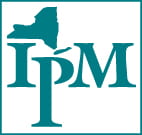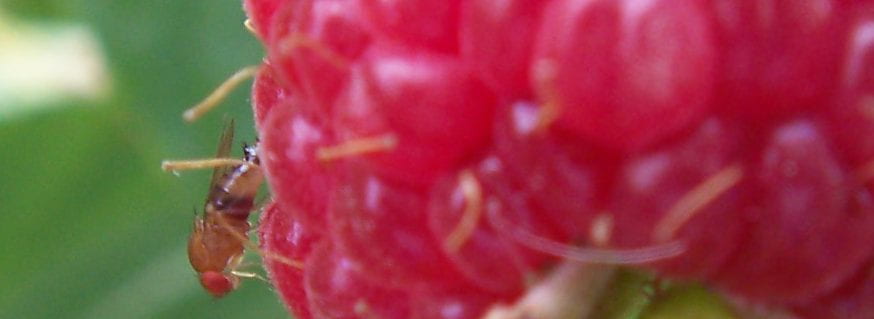Plan now to attend the SWD Workshop in Syracuse, NY, on December 17th. Growers of fall raspberries, mid to late season blueberries, & day-neutral strawberries: Learn how to manage Spotted Wing Drosophila in this in-depth workshop! THIS is the place to learn current SWD information, the most recent research results, and management practices.
Wednesday Dec. 17, 2014, 8:30AM-4PM, Ramada Inn, 1305 Buckley Road, Syracuse, NY. (Can't make it? Plan on January 14 in the Albany area or March 4 in Batavia.)
Presentations by Cornell Researchers, Extension Educators, and New York State Berry Growers Association on SWD biology, management- including insecticides, cultural practices, biological control, and spray technology - early warning signs of infestation, decision making resources.
Hands-on activities on SWD trapping and monitoring, achieving good spray coverage, and salt floatation tests.
Take-home a binder filled with reference information, trap supplies, SWD specimens to aid in identification, and other supplies.
- CCA credits available!
- 5.5 DEC credits available! – Categories 1A, 10, 22, 23 & 24
WORKSHOP REGISTRATION FEE: Per Person- Includes lunch, binder and take-home supplies. Register by December 10th; No refunds after deadline; Late Fee: $20)
NYSBGA Members $25 Join the NYS Berry Growers Association and GET HALF OFF your workshop registration. The 2015 Membership fee is $125 and applies to 2 individuals per farm; $50 goes directly to berry research. The 2015 Associate Membership fee is $75, for a non-profit Ag Professional.
Non-NYSBGA Members $50
REGISTER EARLY, by December 10th, to reserve your seat, lunch, and take-home goodies. Register for the Syracuse SWD Workshop Online. Or, print the registration form and mail it in. More information is at www.hort.cornell.edu/grower/nybga/swdworkshops/.
Questions?
Contact: Penny Heritage, NYSBGA- Communications (518) 424-8028, pennyh@nycap.rr.com
Sponsored by: NYS Berry Growers Association, Cornell Cooperative Extension, Cornell University College of Agriculture and Life Sciences, and NYS IPM Program
Funding support from: NYS Legislature and NY Farm Viability Institute

